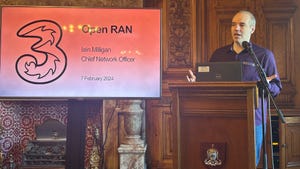
AT&T and Verizon said they will slightly reduce the power of their 5G transmissions in C-band spectrum for six months. The companies said they will do so to allow federal aviation officials more time to study how such transmission might affect radio altimeters in aircraft.
"We are committed to the rapid deployment of 5G and the safety of aviation," the two companies told the FCC in a new letter. "While we continue to believe the FCC’s current rules provide for both, we will, without waiver of our legal rights associated with our substantial investments in these licenses, adopt these precautionary measures to allow for additional time for continued analysis."
Importantly, according to the Wall Street Journal, executives in the wireless industry don't expect the power reduction to "seriously impair" the operators' 5G operations in the spectrum band.
Further, the operators continued to argue that their 5G transmissions in C-band spectrum do not pose a risk to air travel in the US, despite a report from some airlines showing a potential risk of interference to aircraft operations.
"Indeed, the RTCA Report – which is the primary basis for the FAA’s and RA [radio altimeter] stakeholders’ erroneous claims of harmful interference – has been thoroughly debunked and consistently dismissed by regulators around the globe," AT&T and Verizon wrote. "The RTCA Report has significant documented flaws that more than negate all of RTCA’s claims of harmful interference, including using unrealistic models of 5G networks, combining multiple worst-case inputs, creating implausible test scenarios, and utilizing extreme testing standards."
Nonetheless, AT&T and Verizon agreed to reduce the power levels of their nationwide C-band operations, and to further tweak their operations that are near airports, for a period of six months, until July 6. They previously agreed to delay their C-band network launches for a month, until January, due to the issue.
The details of the power reduction are for hardcore RF engineers only: "Limit C-band effective isotropic radiated power (EIRP) above the horizon for all 5G base stations to no more than the lesser of: (a) 62 dBm/MHz or (b) 48 + 20 × log10(1/sin(Ɵ)) dBm/MHz, where Ɵ is the elevation angle above the horizontal plane of the base station antenna," the companies wrote. "Limit C-band EIRP below the horizon for all 5G base stations to no more than 62 dBm/MHz."
The issue is noteworthy considering AT&T and Verizon hope to offer new, speedy 5G services on the C-band spectrum licenses they spent billions of dollars buying in an FCC auction earlier this year.
Related posts:
— Mike Dano, Editorial Director, 5G & Mobile Strategies, Light Reading | @mikeddano
About the Author(s)
You May Also Like












